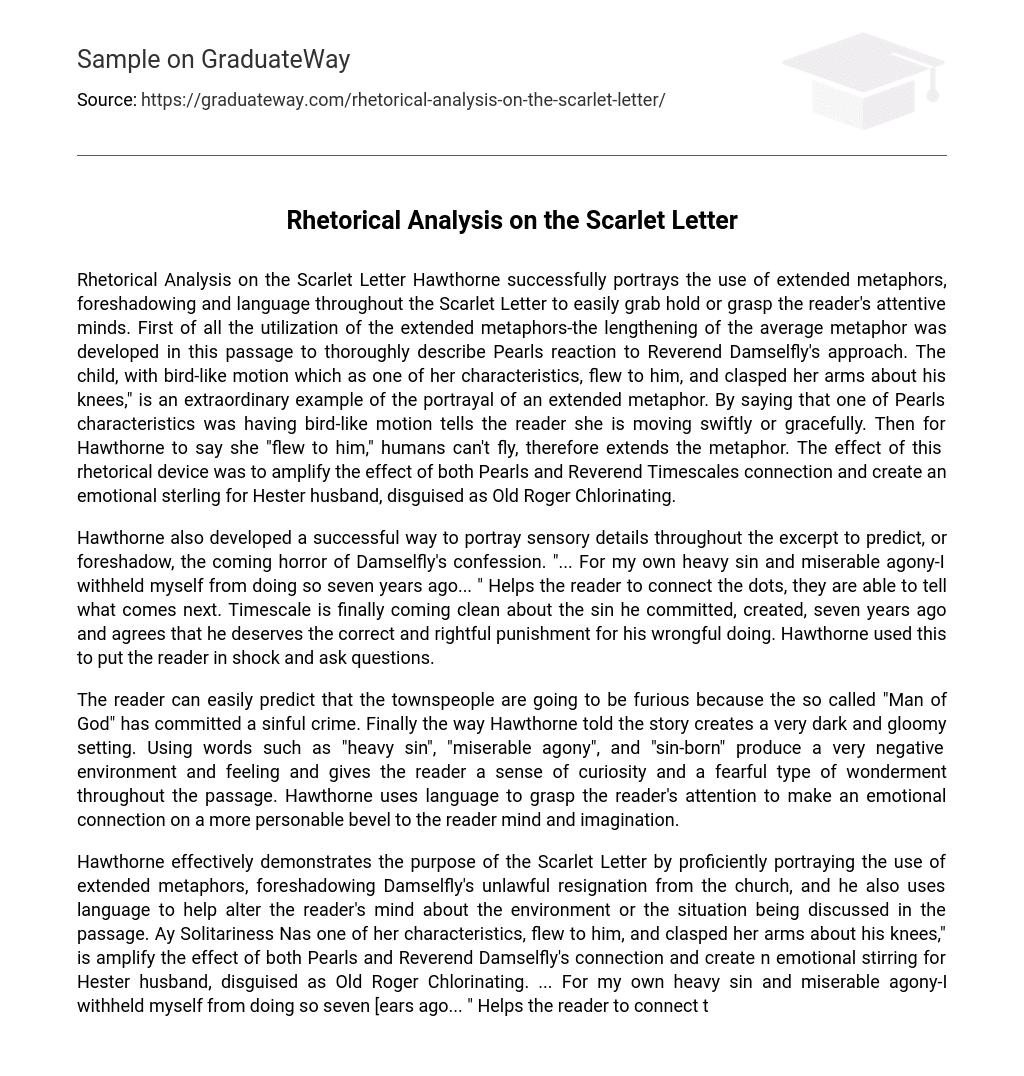The Scarlet Letter by Hawthorne effectively showcases the use of extended metaphors, foreshadowing, and language to captivate the reader. One notable example is the portrayal of Pearl’s reaction to Reverend Dimmesdale’s approach, which is described in great detail through extended metaphors. The text describes Pearl as having bird-like motion, emphasizing her swift and graceful movements. The phrase “flew to him” further extends the metaphor, as it is not possible for humans to fly. This use of extended metaphors enhances the connection between Pearl and Reverend Dimmesdale, while also evoking strong emotions in Hester’s husband, who is disguised as Old Roger Chlorinating.
Hawthorne utilizes effective techniques to foreshadow the impending horror of Damselfly’s confession and create a sense of suspense. By vividly depicting sensory details in the excerpt such as “… For my own heavy sin and miserable agony-I withheld myself from doing so seven years ago…,” the reader is able to discern what is to come. Timescale finally confesses his sin, committed seven years earlier, and acknowledges that he warrants just punishment for his wrongdoing. Hawthrone employs this strategy to astonish the reader and incite curiosity.
The townspeople are likely to become furious because the alleged “Man of God” has committed a sinful crime, as the reader can easily anticipate. Hawthorne’s storytelling technique establishes a dark and gloomy atmosphere. Through the use of phrases like “heavy sin,” “miserable agony,” and “sin-born,” the author creates a negative environment and feeling that evoke curiosity and fearful wonderment in the reader. By employing such language, Hawthorne captures the reader’s attention and forges an emotional connection that resonates deeply in their mind and imagination.
Hawthorne effectively demonstrates the purpose of the Scarlet Letter through the skillful use of extended metaphors. The foreshadowing of Damselfly’s unlawful resignation from the church adds depth to the narrative. Additionally, Hawthorne’s use of language effectively alters the reader’s perception of the environment or situation being discussed. An example of this can be seen in the passage where Ay Solitariness, one of Pearl’s characteristics, embraces Damselfly, creating an emotional impact for Hester’s husband, who is disguised as Old Roger Chlorinating. The line “For my own heavy sin and miserable agony – I withheld myself from doing so seven years ago…” allows readers to connect the dots and understand the consequences Damselfly deserves for his wrongful actions.





